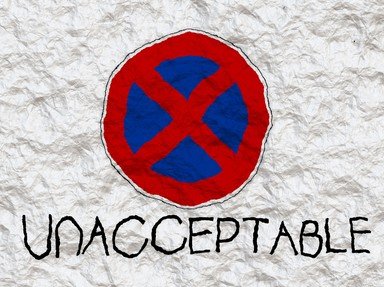Quiz Answer Key and Fun Facts
1. You ask for the capital of Senegal and provide the correct answer, which is Dakar. Your note ('Interesting Information') simply reads, 'The French actress and film star Geneviève Kervine was born there in 1931, a "child of love"'. Leaving aside the fact that this is extremely brief, what best describes the problem with this note?
2. You want to ask a question about Barack Obama's re-election as president of the US. Your question reads: 'Who was re-elected as our president in 2012?' What's the problem?
3. You ask, 'Who is the oldest person alive today?' You name an individual and give her age as 124 years and 3 months. Is this an acceptable question?
4. You have what seems to you a simply brilliant idea for a really original quiz on the Tudors. What is the very first thing you should do?
5. You read on some websites that the lyrics and music of 'Greensleeves' were written by Henry VIII for Anne Boleyn. You suspect that the reliability of your sources is dubious; but you find the idea really charming and you want to ask a question about the authorship, with 'Henry VIII for Anne Boleyn' as the correct answer. Can you do so?
6. You decide to write an English-French quiz, and ask for a French idiom meaning the roughly the same as the English idiom 'to take the biscuit [cake]'. You use an online translating aid and it gives you 'prendre le biscuit [le gâteau]' and you then give this as the correct answer. What's happened?
7. You want to ask who named the moons of Saturn. Your source gives the name as 'Sir William Herschel, Bart.' You are vaguely aware of the comma but assume it's a typo or has somehow crept in by accident, and you give the correct answer as 'Sir William Bart'. What has happened?
8. In a popular late 20th century book on military blunders you read that in the Austro-Ottoman War of 1787-1791, during a disorderly retreat by night near Caransebes (in modern Romania) the Austrian army ended up fighting against itself and that as result anything up to about 10,000 men were killed or wounded without any enemy involvement. It is called the Battle of Karánsebes. This strikes you as tragi-comical and you want to ask something about it. At the same time you are slightly puzzled that you have not heard about this amazing blunder before: after all, ten thousand casualties, in one night, without enemy involvement is much worse than the Charge of the Light Brigade and would surely be a candidate for The Greatest Military Blunder of All Time. Before writing your question, what should you do?
9. You ask 'Who invented the helicopter?' and the answer you give as correct is 'Leonardo da Vinci'. Why is this unsatisfactory?
10. China has become the world's second largest economy. You want to ask 'What is the main case against making Mandarin Chinese an alternative to Spanish as the first foreign language in schools throughout the US?' You give the correct answer as: 'Lack of teachers' and your incorrect answers are: a. 'It's too hard'. b. 'Mandarin Chinese does not use an alphabet'. c. 'There is relatively little contact between US and Chinese citizens and China is culturally too remote'. Is this an admissible question?
Source: Author
bloomsby
This quiz was reviewed by FunTrivia editor
Pagiedamon before going online.
Any errors found in FunTrivia content are routinely corrected through our feedback system.
